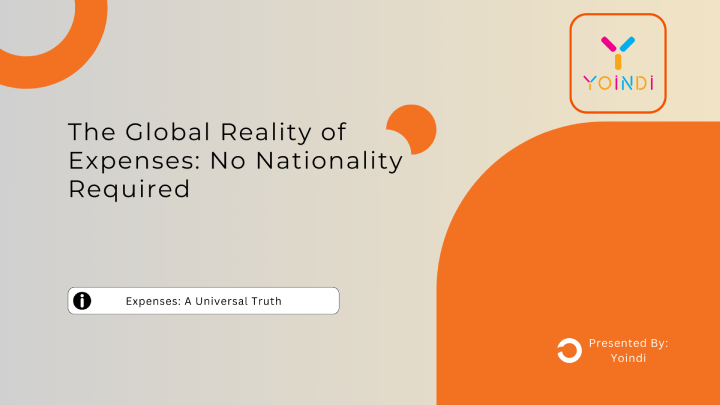The Global Reality of Expenses: No Nationality Required
- Published on: October 4, 2023
- Author: Yoindi
- Credit Cards
In today’s increasingly interconnected world, it’s essential to acknowledge that financial challenges and expenses are a universal concern that transcends borders and nationalities. Regardless of your place of origin, it’s a shared human experience to manage and navigate expenses, whether they involve education, healthcare, housing, or even the everyday costs of living.
In this blog post, we will delve into the concept that expenses are a global phenomenon that knows no bounds. We’ll explore the common ground we share when it comes to financial struggles and the significance of adopting a global perspective to tackle these challenges effectively.

Expenses: A Universal Truth
Expenses are a fundamental aspect of life that impacts everyone, irrespective of their nationality. Whether you reside in a developed nation with a robust financial infrastructure or a developing country with limited resources, the reality of covering daily, monthly, and long-term expenses remains constant for all.
Basic Necessities: The essential expenses for shelter, nourishment, and clothing are fundamental for survival and are universally experienced by people worldwide.
Education: The pursuit of quality education is a shared aspiration. Students from diverse backgrounds often grapple with the task of financing tuition fees, textbooks, and other educational expenses.
Healthcare: While health is a basic human right, medical costs can burden individuals and families across the globe.
Transportation: Transportation expenses, whether for urban commutes or rural journeys, are a common concern. The cost of getting to work, school, or medical appointments is a shared experience.
The Significance of a Global Perspective
Acknowledging that expenses have no nationality is more than an observation; it’s a call to action. By recognizing the commonality of our financial challenges, we can work collaboratively on a global scale to address them effectively.
International Solidarity: Understanding that people worldwide encounter similar financial struggles fosters empathy and a willingness to support others, both within our communities and on a global scale.
Global Solutions: Complex global issues such as poverty, healthcare accessibility, and climate change necessitate international cooperation. Recognizing that expenses affect us universally motivates us to seek solutions that transcend borders.
Cultural Exchange: Engaging with individuals from diverse backgrounds encourages cultural exchange, enabling us to appreciate the richness of various perspectives on managing expenses.
Conclusion:
The universality of expenses transcends nationality. We all grapple with the common challenge of managing our financial responsibilities and aspirations. By acknowledging this shared reality, we can strive for a more interconnected world where empathy, solidarity, and global solutions aid us in confronting the financial challenges that impact us all.
Let’s work towards a future where opportunities and an improved quality of life are accessible to everyone, regardless of their nationality, and let’s not forget that credit cards can be valuable financial tools for managing expenses in today’s globalized world.












